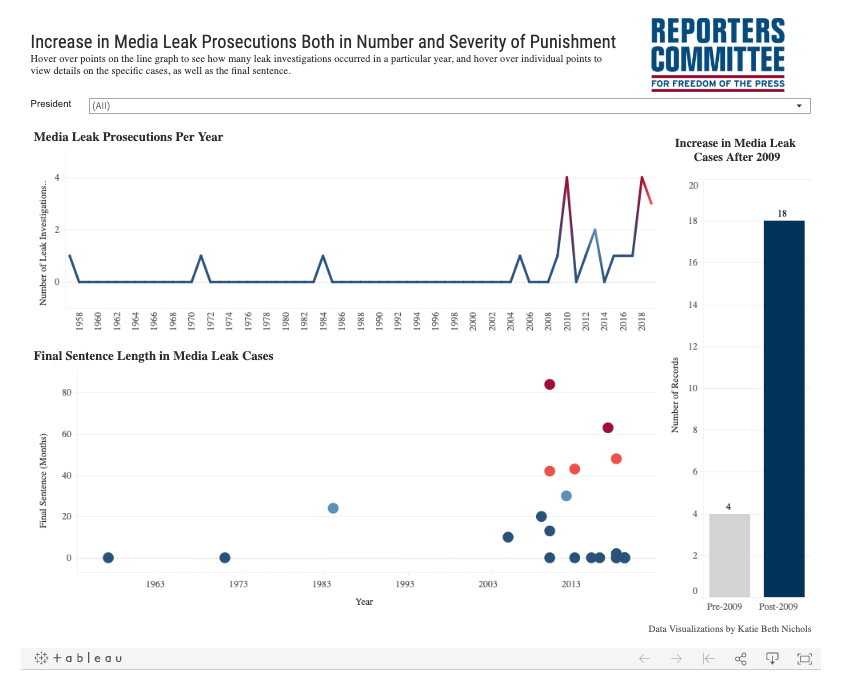Bringing the Reporters Committee’s list of unauthorized media disclosures to life

Following the news that prosecutors had secretly seized records from journalist Ali Watkins as part of an investigation into former security director for the Senate Select Committee on Intelligence, James Wolfe, RCFP Technology and Press Freedom Project Director Gabe Rottman, along with RCFP fellows and staff, began comprehensively tracking and cataloging federal investigations involving leaks to the media throughout American history.
“We knew that there had been a real and troubling uptick in Espionage Act cases over the last decade, and we wanted to provide a resource to show just how dramatic that trend has been,” Rottman said.
The Reporters Committee decided to bring this resource for academics, journalists and others to life through a visualization that would quickly illustrate the emerging trends occurring in national security media leak investigations and how they have progressed over time. The visualization only tracks those cases involving a leak of classified information, but the overall data also looks at, for instance, court-ordered investigations into the leak of grand jury information, or Privacy Act suits based on leaks from the government in criminal investigations.
The Reporters Committee’s data visualization shows a noticeable increase in the number of national security leak investigations involving the media and journalistic sources, from four before 2009 (of which only one was successful) to 18 in the last 10 years. It also tracks sentence lengths in these cases and visualizes the increase in the severity of punishment. By using a graphical representation to illustrate the large underlying dataset, users can process it more quickly, observe trends and discover prominent outliers.
“The chart really illuminates the complex interactions between national security and journalism, and all of this data will help show how aggressive leak-hunting can directly impact newsgathering by silencing sources,” Rottman said.
The Reporters Committee hopes the addition of this component to the comprehensive list of federal investigations involving leaks to the media will make this information more accessible and usable.
The Reporters Committee regularly files friend-of-the-court briefs and its attorneys represent journalists and news organizations pro bono in court cases that involve First Amendment freedoms, the newsgathering rights of journalists and access to public information. Stay up-to-date on our work by signing up for our monthly newsletter and following us on Twitter or Instagram.